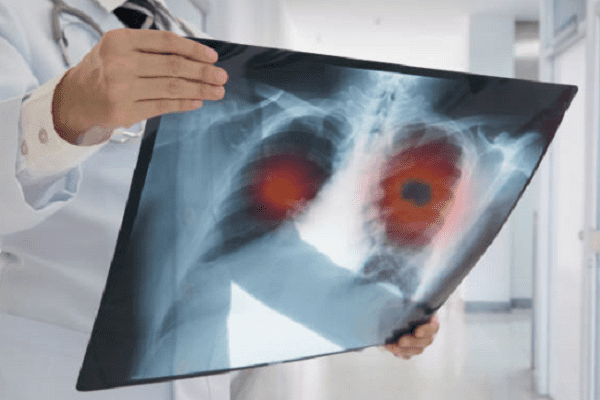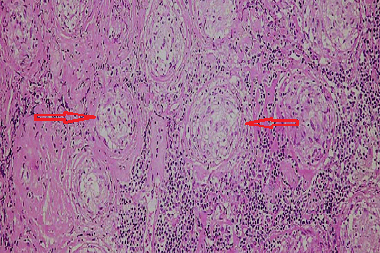Respiratory system >>>> Sarcoidosis - causes and signs
Sarcoidosis - causes and signs.

Sarcoidosis is a systemic disease with an unspecified cause. The disease affects various organs, but mainly its target is the lung tissue, where foci of multiple altered tissue cells - granulomas - develop. In addition to the lung tissue, sarcoidosis is often found in the tissues of the liver, kidneys, heart, and spleen.

The disease develops in the period of 30-40 years, may have hereditary preconditions or be provoked by an unfavorable environment. According to statistics, sarcoidosis is more often found in women. Sarcoidosis is not contagious.
Typical signs of sarcoidosis:
- May be asymptomatic for a long time,
- Fluorography reveals lesions,
- General malaise, weakness,
- Loss of appetite, weight loss,
- Night sweats,
- Heaviness in the chest area,
- Cough,
- Shortness of breath,
- Increased body temperature.
Diagnosis of the disease is carried out against the background of a complete examination and exclusion of diseases similar in symptoms: tuberculosis, pneumonia, pneumoconiosis and other pulmonary diseases. To clarify the diagnosis, a biopsy of the lung tissue and bronchoalveolar lavage are performed. A biochemical blood test is mandatory.
Sarcoidosis is treated with corticosteroids. There are known cases of extinction of the disease on its own. Treatment and control over the course of the disease is carried out under the supervision of a phthisiatrician.

Read

Read



























